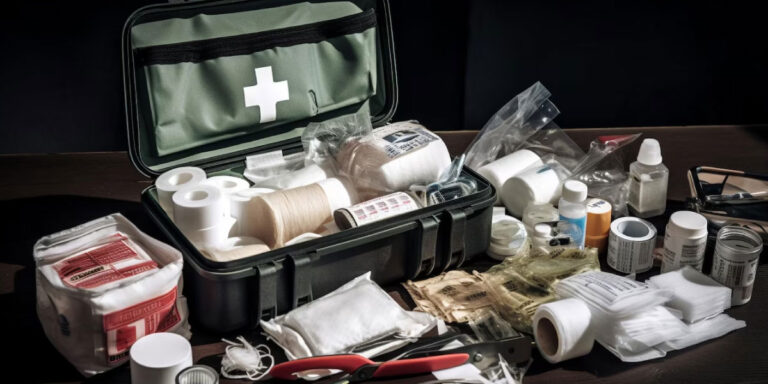We exclusively deliver training sessions in the highest quality facilities. Explore our venues and discover our available dates and pricing below:
Live online events
Wednesday, 11 March 2026 – Friday, 13 March 2026
08:45 AM GMT – 04:00 PM GMT (3 days)
Wed 11 Mar 2026 – Fri 13 Mar 2026
08:45 AM GMT – 04:00 PM GMT (3 days)
A packed and well paced First Aid at Work program over 3 days. On this L3 accredited First Aid at Work program, learners will develop the skills and knowledge needed to deal with a range of first aid situations.
Monday, 23 March 2026 – Wednesday, 25 March 2026
08:45 AM GMT – 04:00 PM GMT (3 days)
Mon 23 Mar 2026 – Wed 25 Mar 2026
08:45 AM GMT – 04:00 PM GMT (3 days)
A packed and well paced First Aid at Work program over 3 days. On this L3 accredited First Aid at Work program, learners will develop the skills and knowledge needed to deal with a range of first aid situations.
More InformationMonday, 23 March 2026 – Wednesday, 25 March 2026
08:45 AM GMT – 05:00 PM GMT (3 days)
Mon 23 Mar 2026 – Wed 25 Mar 2026
08:45 AM GMT – 05:00 PM GMT (3 days)
A packed and well paced First Aid at Work program over 3 days. On this L3 accredited First Aid at Work program, learners will develop the skills and knowledge needed to deal with a range of first aid situations.
More InformationWednesday, 8 April 2026 – Friday, 10 April 2026
08:45 AM BST – 04:00 PM BST (3 days)
Wed 8 Apr 2026 – Fri 10 Apr 2026
08:45 AM BST – 04:00 PM BST (3 days)
A packed and well paced First Aid at Work program over 3 days. On this L3 accredited First Aid at Work program, learners will develop the skills and knowledge needed to deal with a range of first aid situations.
More InformationMonday, 20 April 2026 – Wednesday, 22 April 2026
08:45 AM BST – 04:00 PM BST (3 days)
Mon 20 Apr 2026 – Wed 22 Apr 2026
08:45 AM BST – 04:00 PM BST (3 days)
A packed and well paced First Aid at Work program over 3 days. On this L3 accredited First Aid at Work program, learners will develop the skills and knowledge needed to deal with a range of first aid situations.
More InformationTuesday, 12 May 2026 – Thursday, 14 May 2026
08:45 AM BST – 04:00 PM BST (3 days)
Tue 12 May 2026 – Thu 14 May 2026
08:45 AM BST – 04:00 PM BST (3 days)
A packed and well paced First Aid at Work program over 3 days. On this L3 accredited First Aid at Work program, learners will develop the skills and knowledge needed to deal with a range of first aid situations.
More InformationMonday, 25 May 2026 – Wednesday, 27 May 2026
08:45 AM BST – 04:00 PM BST (3 days)
Mon 25 May 2026 – Wed 27 May 2026
08:45 AM BST – 04:00 PM BST (3 days)
A packed and well paced First Aid at Work program over 3 days. On this L3 accredited First Aid at Work program, learners will develop the skills and knowledge needed to deal with a range of first aid situations.
More InformationMonday, 22 June 2026 – Wednesday, 24 June 2026
08:45 AM BST – 04:00 PM BST (3 days)
Mon 22 Jun 2026 – Wed 24 Jun 2026
08:45 AM BST – 04:00 PM BST (3 days)
A packed and well paced First Aid at Work program over 3 days. On this L3 accredited First Aid at Work program, learners will develop the skills and knowledge needed to deal with a range of first aid situations.
More InformationTuesday, 23 June 2026 – Thursday, 25 June 2026
08:45 AM BST – 04:00 PM BST (3 days)
Tue 23 Jun 2026 – Thu 25 Jun 2026
08:45 AM BST – 04:00 PM BST (3 days)
A packed and well paced First Aid at Work program over 3 days. On this L3 accredited First Aid at Work program, learners will develop the skills and knowledge needed to deal with a range of first aid situations.
More InformationWednesday, 22 July 2026 – Friday, 24 July 2026
08:45 AM BST – 04:00 PM BST (3 days)
Wed 22 Jul 2026 – Fri 24 Jul 2026
08:45 AM BST – 04:00 PM BST (3 days)
A packed and well paced First Aid at Work program over 3 days. On this L3 accredited First Aid at Work program, learners will develop the skills and knowledge needed to deal with a range of first aid situations.
More InformationMonday, 27 July 2026 – Wednesday, 29 July 2026
08:45 AM BST – 04:00 PM BST (3 days)
Mon 27 Jul 2026 – Wed 29 Jul 2026
08:45 AM BST – 04:00 PM BST (3 days)
A packed and well paced First Aid at Work program over 3 days. On this L3 accredited First Aid at Work program, learners will develop the skills and knowledge needed to deal with a range of first aid situations.
More InformationTuesday, 18 August 2026 – Thursday, 20 August 2026
08:45 AM BST – 04:00 PM BST (3 days)
Tue 18 Aug 2026 – Thu 20 Aug 2026
08:45 AM BST – 04:00 PM BST (3 days)
A packed and well paced First Aid at Work program over 3 days. On this L3 accredited First Aid at Work program, learners will develop the skills and knowledge needed to deal with a range of first aid situations.
More InformationMonday, 24 August 2026 – Wednesday, 26 August 2026
08:45 AM BST – 04:00 PM BST (3 days)
Mon 24 Aug 2026 – Wed 26 Aug 2026
08:45 AM BST – 04:00 PM BST (3 days)
A packed and well paced First Aid at Work program over 3 days. On this L3 accredited First Aid at Work program, learners will develop the skills and knowledge needed to deal with a range of first aid situations.
More InformationMonday, 14 September 2026 – Wednesday, 16 September 2026
08:45 AM BST – 04:00 PM BST (3 days)
Mon 14 Sep 2026 – Wed 16 Sep 2026
08:45 AM BST – 04:00 PM BST (3 days)
A packed and well paced First Aid at Work program over 3 days. On this L3 accredited First Aid at Work program, learners will develop the skills and knowledge needed to deal with a range of first aid situations.
More InformationMonday, 21 September 2026 – Wednesday, 23 September 2026
08:45 AM BST – 04:00 PM BST (3 days)
Mon 21 Sep 2026 – Wed 23 Sep 2026
08:45 AM BST – 04:00 PM BST (3 days)
A packed and well paced First Aid at Work program over 3 days. On this L3 accredited First Aid at Work program, learners will develop the skills and knowledge needed to deal with a range of first aid situations.
More InformationWednesday, 21 October 2026 – Friday, 23 October 2026
08:45 AM BST – 04:00 PM BST (3 days)
Wed 21 Oct 2026 – Fri 23 Oct 2026
08:45 AM BST – 04:00 PM BST (3 days)
A packed and well paced First Aid at Work program over 3 days. On this L3 accredited First Aid at Work program, learners will develop the skills and knowledge needed to deal with a range of first aid situations.
More InformationMonday, 26 October 2026 – Wednesday, 28 October 2026
08:45 AM GMT – 04:00 PM GMT (3 days)
Mon 26 Oct 2026 – Wed 28 Oct 2026
08:45 AM GMT – 04:00 PM GMT (3 days)
A packed and well paced First Aid at Work program over 3 days. On this L3 accredited First Aid at Work program, learners will develop the skills and knowledge needed to deal with a range of first aid situations.
More InformationWednesday, 18 November 2026 – Friday, 20 November 2026
08:45 AM GMT – 04:00 PM GMT (3 days)
Wed 18 Nov 2026 – Fri 20 Nov 2026
08:45 AM GMT – 04:00 PM GMT (3 days)
A packed and well paced First Aid at Work program over 3 days. On this L3 accredited First Aid at Work program, learners will develop the skills and knowledge needed to deal with a range of first aid situations.
More InformationMonday, 23 November 2026 – Wednesday, 25 November 2026
08:45 AM GMT – 04:00 PM GMT (3 days)
Mon 23 Nov 2026 – Wed 25 Nov 2026
08:45 AM GMT – 04:00 PM GMT (3 days)
A packed and well paced First Aid at Work program over 3 days. On this L3 accredited First Aid at Work program, learners will develop the skills and knowledge needed to deal with a range of first aid situations.
More InformationWednesday, 16 December 2026 – Friday, 18 December 2026
08:45 AM GMT – 04:00 PM GMT (3 days)
Wed 16 Dec 2026 – Fri 18 Dec 2026
08:45 AM GMT – 04:00 PM GMT (3 days)
A packed and well paced First Aid at Work program over 3 days. On this L3 accredited First Aid at Work program, learners will develop the skills and knowledge needed to deal with a range of first aid situations.
More InformationIn the event of a cancellation or deferment, we provide fully transparent terms and conditions.


Delivered over three days by the experts at Acadame, our QNUK Level 3 Award in First Aid at Work Training in Staffordshire is packed full of the essential information. On our well-paced program, learners will develop the skills and knowledge necessary to deal with a range of emergency first aid situations.
This includes assessing an incident, managing an unresponsive casualty, and admitting CPR. We will also cover how to administer first aid in the event heart attacks, choking, head and spinal injuries, fractures, anaphylaxis, and more.
This course for First Aid at Work in Staffordshire is aimed at those who undertake the responsibilities associated with being a workplace first aider.
small cuts
grazes
bruises
small splinters
learners will know how to deal with minor burns and scalds in line with accepted current practice as outlined in the Voluntary Aids Society First Aid Manual.
How to administer First Aid for:
Demonstrating how to apply:
Dust
Chemicals
Embedded objects
Heart Attack
Stroke
Epileptic seizure
Asthma attack
Diabetic emergency
The method of assessment is a two-step journey:
Candidates will be observed to ensure that they can:
The examination consists of 40 multiple-choice questions.
Acadame’s First Aid at Work Training in Staffordshire is classroom based and held over 3 days.
Yes. On successful completion the learner will receive an accredited certificate. The certificate will be forwarded at a later date. A proof of pass can be immediately provided if required though.
Certification for this course is valid for 3 years but the HSE recommends a refresher course every year. To remain certified in this area, you will need to take the refresher course before the expiry date.
Our First Aid at Work in Staffordshire is aimed at those over 16 who are able to undertake the responsibilities associated with being a workplace emergency first aider.
Learners between 14-16 years can undertake the qualification, however they should not be relied upon by employers to be a sole emergency first aider.
Due to the language of the assessment, it is recommended that learners have sufficient command of the English language in order to understand the assessment and to undertake the recommended assessment methods.
Attendees will be required to demonstrate First Aid procedures as they would in a real work environment. This includes providing CPR to a casualty who is on the floor, therefore be physically capable of doing so.